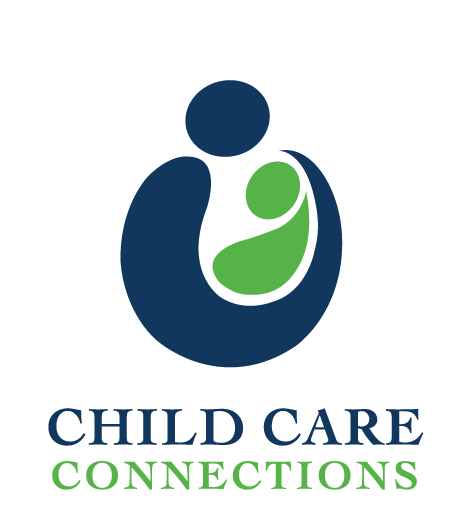There are 7 key elements that we need to keep in mind when creating or improving meaningful family partnerships.
Communication
Cultural Sensitivities
Family and Care Giver Expertise
Shared Decision Making
Respecting Differences
Family Involvement
Difficult Conversation
In this article we will be talking about reflecting on our communication with families.
Within the topic of communication, we need to consider:
Showing Interest
Being Humble
Being Respectful
Being Inviting
Being a Good Listener
Being Positive
Being Creative
As child care professionals, we must be reflective and intentional about achieving effective family-provider relationships through good communication
Communication
Be interested. As child care professionals, before we ever open our mouths to speak, we can first reflect on our attitude towards the family member.
We should ask ourselves some questions that help determine our interest in the individual:
Am I interested in you as a person?
Am I curious about what you think, what your experiences and perspectives are?
Do I want to hear what you have to say?
It is easy to tell when someone is truly interested in another person. We can hear it in their voice and see it on their face. It makes a big difference in the way the other person responds.
Show genuine interest in each parent and family member to show your interest in each interaction, starting from the very first one. Interactions build relationships and the more positive interactions you have, the more positive relationship you build. Remind yourself often that every person has a story, and every family has a unique life.
Be humble. We know a lot about young children and the best practices to support their care and learning. Parents can sometimes feel intimidated or put off by this expertise, especially if the child care provider comes across as all-knowing. The truth is that there is a lot that child care professionals do not know, especially about an individual child.
If our goal is to work with parents for the well-being of their child, it is helpful to maintain a view of ourselves and parents as co-contributors, with each having valuable but insufficient information that is needed to understand how best to support the child.
When we approach parents with an attitude of curiosity and humility, parents in turn will be more likely to approach us and seek out our opinions and suggestions. Then we can figure things out together, which always has a better outcome for children.
Be respectful. We say parents are children’s first teachers. But sometimes we do not come across as respecting that role when we are talking with parents. Even if we happen to disagree with a parent’s decision or viewpoint, it is still important to maintain an attitude of respect for the parent's role and for the values and experiences that shape their decisions.
Be intentional about expressing your belief that parents want what is best for their child and that their role as the parent is incredibly important, even when you may not agree with a specific decision or approach. When you acknowledge and affirm parents in this way, it helps establish trust and opens the way for dialogue in which your viewpoint is more likely to be considered.
Being respectful also means doing everything possible to make sure that communication barriers are overcome. To communicate with parents who have limited English proficiency or a disability that affects communication, look for resources and supports that facilitate communication between you and those parents.
Be inviting. We cannot assume that families know that we want to hear their perspective.
Although much of our conversation with parents will be about the child, expressing an interest in the parent is likely to invite a deeper level of trust and openness. For a variety of reasons, some parents need to be intentionally invited to communicate with us and nothing invites communication like being asked a good question! Ask questions that show you are interested and are paying attention.
Ask open-ended questions that invite thoughtful response.
Ask follow-up questions that reflect sincere interest in what the parent is sharing.
To help develop question-asking skills, try practicing with other providers/teachers during staff or professional development meetings.
Be a good listener. Most people do not have a natural talent for listening. Anyone who has had the experience of being in a conversation with a good listener will appreciate the powerful effect it can have on the quality of the dialogue and the relationship. So how do we listen well? Here are a few tips:
Convey the message “I’m listening” with your eyes, face, and body as well as with your words.
Wait for a response. Allow pauses. Do not be too quick to jump in. Some people are very quick to speak, and others take more time to translate thoughts into words.
Be wholly in the moment. This can be challenging in a busy, noisy child care setting, but do your best to give a parent your full attention, even if it is only for a moment during pick-up or drop-off time. If you or the family member want to have a longer, more serious conversation, move to a quieter place so that you can give him/her your full attention. If that is not possible, apologize for not being able to focus fully and set up a phone call or meeting for another time.
Be positive. Do not communicate only when there is a problem or concern, or when you want something from a parent. When parents come to expect only negative messages, they are likely to avoid the messenger. When the major communication time is during drop-off and pick-up, problems and concerns tend to be the messages that are communicated because they are the most urgent. A proactive, multilayered communication plan, on the other hand, can help keep the majority of the messages to families positive, constructive, and encouraging. Share fun stories and be sure to tell parents about the positive things you observe in their child. Be particularly mindful of sharing positive stories and comments with military families during the stressful times of deployment, reunification, and relocation. Parents will most likely be worried about how their child is faring during these times. Your encouraging, positive words will go a long way toward easing that worry.
Be creative. We have never had so many ways to communicate with one another! Child care professionals need to take advantage of as many of these methods as necessary to meet the needs and preferences of families. Families are busy, busy, busy! Better to send the same message multiple ways and risk minor annoyance than to rely on one way of communicating that is not effective for all parents. Ask individual family members often whether they are getting information that you send out to all the families and to them. Never assume that they see the note you put in their child’s backpack or the news post on your Facebook page. Be creative. Be responsive. If covering all these ways of communicating feels like too much, ask parents, interested staff, and/or volunteers to help.
Here are some more sources for building partnerships:




